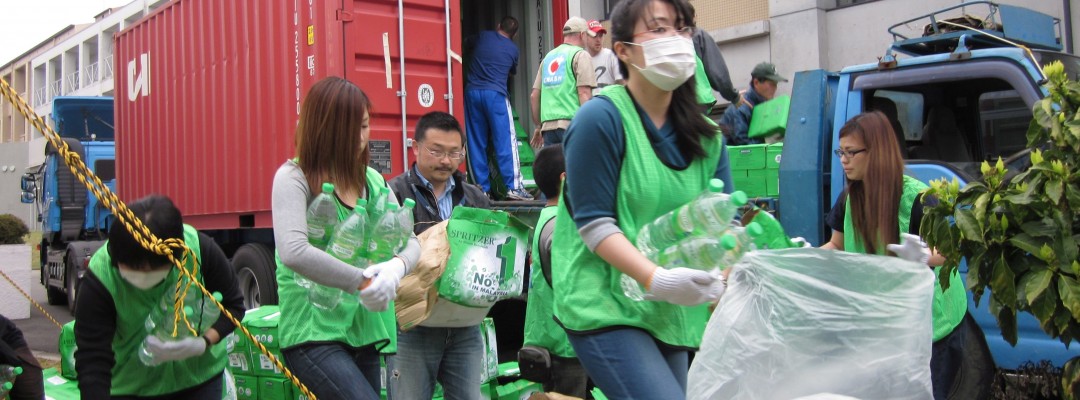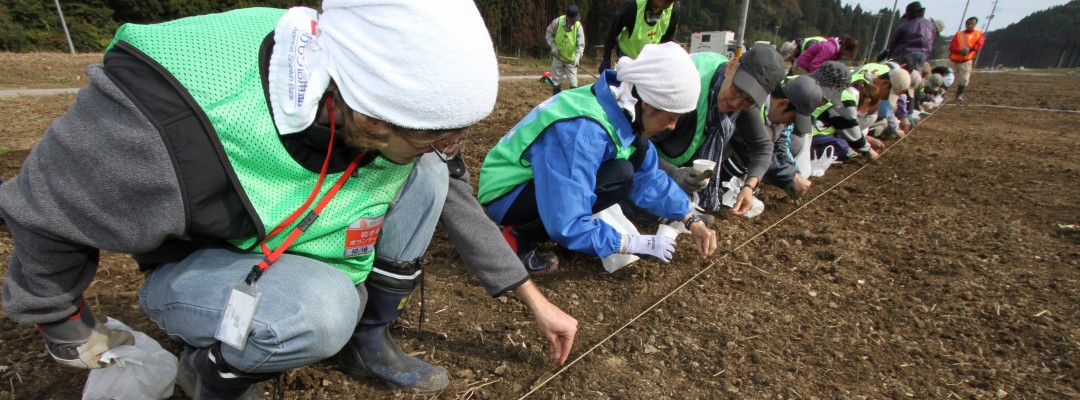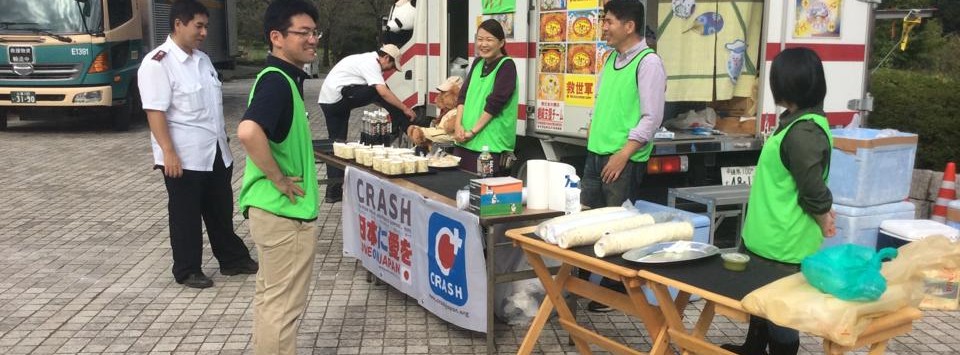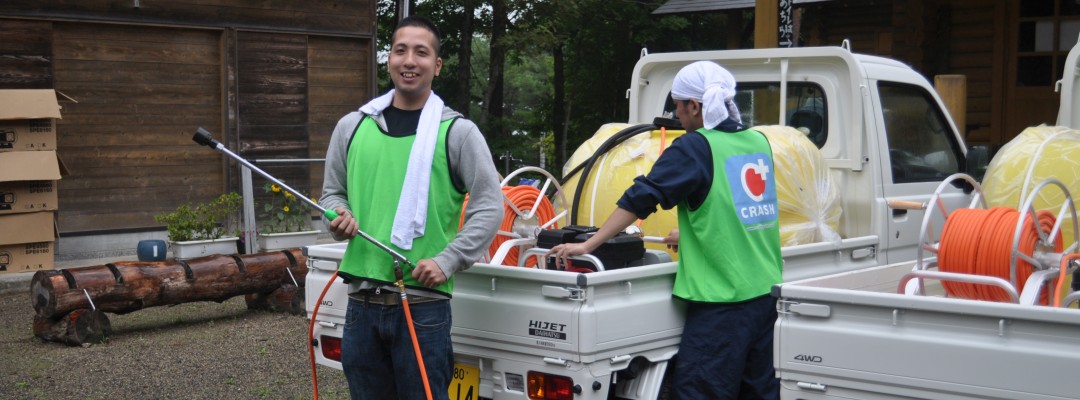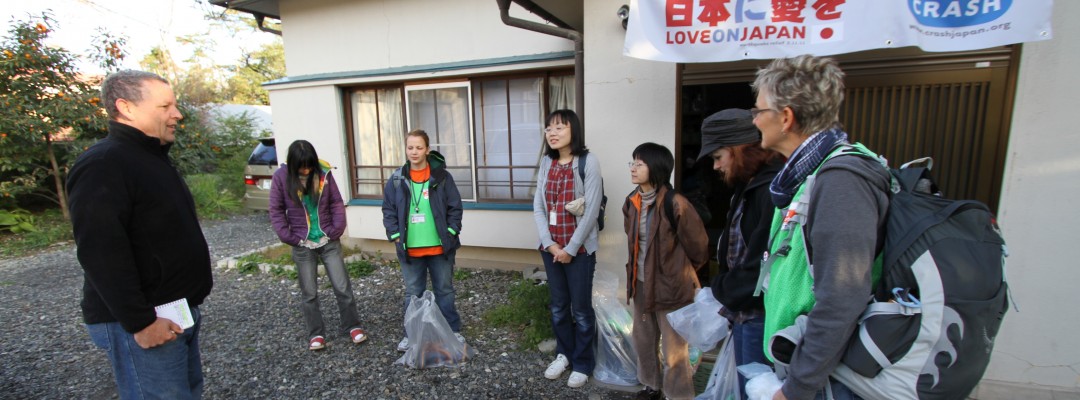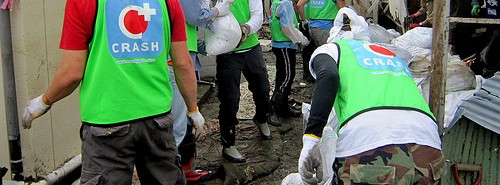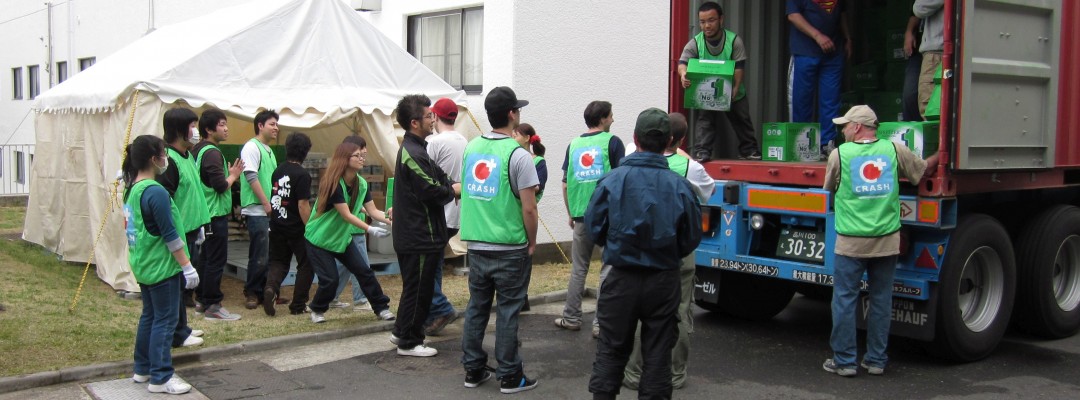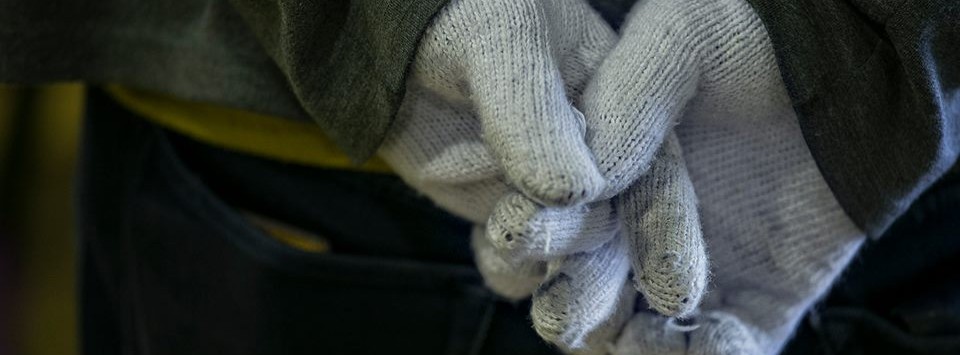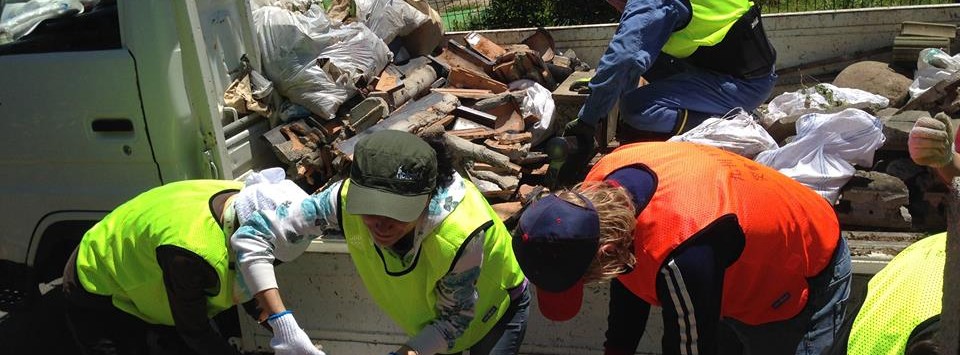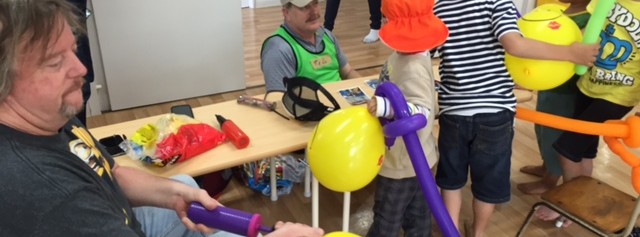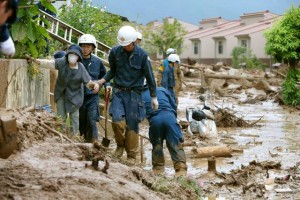Latest Posts
Hiroshima Landslide Volunteer Registration
We are currently assessing the situation in Hiroshima where deadly landslides swept through a number of communities on August 20th. Churches in Hiroshima and the local office of Japan Food for the Hungry International are meeting today to work on a plan for coordinated action. Clean up after mudslides is very hard work and labor intensive. There will be a need for those who can volunteer. We will do our best to provide opportunities in cooperation with churches in Hiroshima for volunteer teams to serve. CRASH seeks to deploy Christian volunteer teams that can work safely and effectively to bring help and hope to communities through the local church. We will work as quickly as we can, but in an organized and effective manner. If you would like to volunteer, please register now for the CRASH newsletter and we will keep you posted in the days ahead as things get organized.
OperationSAFE IN Yunnan, China
OperationSAFE China
Zhaotong, Yunnan, China Earthquake Situation Update
At 4:30 p.m. on 3 August 2014, an earthquake at the magnitude of 6.5 shook Ludian County of Zhaotong Prefecture, Yunnan Province, affecting Ludian County, Qiaojia County, Shaoyang District and Yongshan County of Zhaotong Prefecture, as well as Huize County of Quzhing Prefecture. Among them, the worst hit areas are in Ludian County. The quake claimed 617 lives, 112 people were reported missing, 3,143 people were injured, and 229,700 people were displaced. Some 60,000 houses collapsed or were severely damaged. Public utility and infrastructure were damaged at various extents.
Our partners that we worked with for the 2008 Sichuan quake and 2010 quake in the Tibetan area of Quinghai have already been to do a rapid assessment and have discovered an urgent need for psychological emotional care for 6000 primary school students and have received an invitation from the local education officials. They would like to mobilize teams to begin OperationSAFE child trauma camps for these children as early as the end of this month. We need your help! As little as $6 can sponsor one child.
THE CHURCH IN JAPAN’S CRISIS OF AGE
Servant Team Leader, Reiko Sugimoto reported: “Churches from about 30 different groups and around 140 people attended. God’s incomparable presence was with us to the end. I was so pleased that people came from as far away as Wakayama, Miyagi, Yamagata, Fukushima and Nagano and ranged in age from 0 to 80. Thank you for your prayers and attending and for each of your contributions to making this event successful.”

4/14 Window Tokyo Leadership Summit
Dr. Luis Bush and East Asia Coordinator John Hur’s presence was a great encouragement for our team and for those who attended. As we talked around the lunch table, conversation turned to the critical moment that Japan is facing in its history and how God is positioning His people for it. I will try to summarize and give some of my own insight.
Japan is currently approaching an existential crisis that it must resolve if it is going to survive. The most simple way to describe it is that decades of low birth-rates and falling marriage rates combined with ever increasing life-spans has created a top heavy society with roughly a third of Japanese over the age of 60 and only 28% under the age of 30. This problem is actually compounded in the Japanese church where Masakazu Suzuki of CRASH Japan writes, “based on 2012 data, out of the average sized church in Japan with 35 attending worship on Sunday, 18 are over the age of 60 and only 2 are under the age of 30. This means that the church has 20% more elderly than the national average and 20% less of the younger generation.” 『宣教の革新を求めて』(東京基督
Part of the task that the 4/14 Window faces in Japan is to raise awareness of this crisis within the church and “draw the hearts of the fathers to the children.” We are making good progress towards this with the successful events now in April and July that is growing towards a national conference in November. We have enjoyed a broad base of support including organizations such as Samaritan’s Purse, OneHope, Awana and CRASH Japan and 7Media on the servant team as well as cooperation from the Japan Evangelical Association, the Lausanne Movement in Japan and independent churches. The events have been given good coverage in the Japanese Christian press and the Leadership Summit will be broadcast in seminar format on CGN Television.
This is a “Kairos” moment in Japan’s history and it would be short-sighted to assume that God has left His people unprepared to meet the challenge. The church in Japan has just been through a period of great change in response to the Great East Japan Disaster of 2011. It has been said that during that time three walls have come down; the walls between churches, the walls between the church and community, and the walls between Japan and the outside world. Let me make a few comments on each of these.
- The walls between churches
The 4/14 Window Movement is interdenominational and so far there has been great cooperation and unity between differing groups. One of the key ingredients to making it work is that we focus not on specific methodologies or doctrines, but on doing theology together and sharing resources without territorialism. - The walls between churches and the community
The bottom line is that without engaging the community there is no way to reverse the declining trend in the children and youth in the church. We are past the point of expecting that children born in the church will be enough! I am hoping that this can be the challenge that Pastor Nam Soo Kim can bring to the conference in November. - The walls between Japan and the world
The general attitude in Japan has been that things that work other places in the world won’t work here because of Japan’s unique nature. But the tsunami forced us to work together with volunteers from around the world. It is still difficult and never an exact match, but I believe that the contributions of the 4/14 Global leadership will be well received and help the church in Japan to find the way forward. That said, I am encouraged that the Global Leadership is not dominated by Western Christians. It is important that Asians (Korean, Mongolian, Indonesian, Philippines) be at the forefront and that there is plenty of time for Japanese leaders to present from the stage.
The biggest thing that the church in Japan learned through the tsunami crisis was that what Japan really needs from us and has no other source of is hope. The hope of the gospel must be clearly communicated to the next generation so that they can find purpose and strength to meet the crisis coming to this nation.
4/14 WINDOW MOVEMENT JAPAN
Over the last year I have been blessed to visit great organizations around Asia that are working with children. In Indonesia we shared strategies and techniques with World Relief who are working with the children of asylum seekers that are growing up in a detention center in Bali. In the Philippines we have partnered with the Philippine Children’s Ministry Network as they moved rapidly to respond to the devastation of Typhoon Yolanda. In Mongolia we collaborated with World Vision, Compassion International, One Hope and Awana to challenge and encourage hundreds of pastors and children’s ministry workers in a nation with a modern Christian history of scarcely over 25 years.
Why are relief and development ministries like World Vision and Compassion investing so heavily in encouraging strong church involvement with children?
It is simple. The local church is the number #1 partner when disaster strikes or in combatting poverty. We have been so amazed to see how dynamic and powerful the churches in the Philippines have been to rally in support of the OperationSAFE child trauma work. Hundreds of volunteers have been trained and swiftly mobilized all because the churches are already networked and active in children’s work. After seeing what the Lord is doing in each of these places, we came back each time with an even heavier burden for Japan. What is the state of children’s ministry in this country? Some sobering statistics have emerged. Over half of the churches in Japan no longer have any children’s ministry whatsoever! Where post-war Japan had as many as 90 children on AVERAGE attending Sunday schools at churches, that number has dropped in recent years to less than 9. It is easy to see that children’s ministry attendance is a leading indicator of the health of the church, and the emptying of our Sunday schools is only a precursor to the emptying of the churches. The church in Japan is approaching a very real crisis! What can we do about it? CRASH Japan is a sponsoring member of the 4/14 Window Movement in Japan. What is the 4/14 Window? It is very simply the most effective window of opportunity to reach people with the gospel of Jesus Christ, between the ages of 4 and 14 years old. We are joining efforts with many of the same groups that came together to work so well during the 2011 Tsunami disaster to meet this new crisis; the Japan Evangelical Association, Samaritan’s Purse, One Hope, Awana, 7Media, Family Forum Japan and many many more. The way we see it there are three major points to begin in prayer.
Potential
If there is any future for the church in Japan it begins with the children. D. L. Moody once said that if he could go back and do it all over again he would have devoted his entire ministry to reaching children.
Priority
Although over 70% of people who receive Christ as their Savior do it between the ages of 4 to 14 years old, only a small fraction of the ministry of the churches are concentrated on this critical age group. We are challenging the churches to rethink their priorities.
Partnership
Children are not just the object of our ministry but are also part of the ministry themselves. The prayers of children, worship of children, testimonies of children and service of children are all vital to reaching Japan with the authentic gospel of Jesus.
Please join us on July 12th for a day of challenge and encouragement in Tokyo, Japan as we host Dr. Luis Bush who coined the term 4/14 Window and has graciously offered to come to Japan to address us in this time of crisis.

